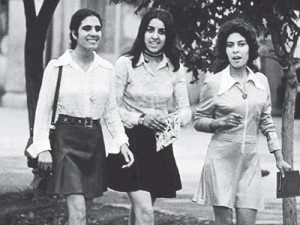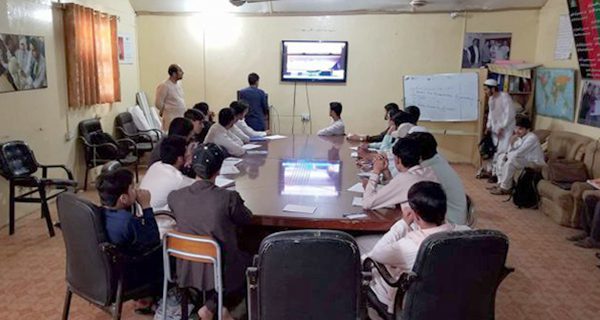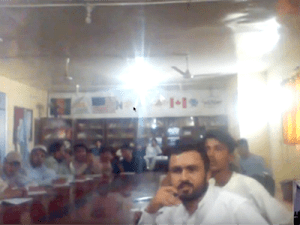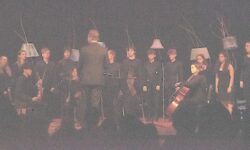[ccfic caption-text format="plaintext"]
By Ethan Lee
Hometown Weekly Correspondent
Part I: Lessons from Afghan Students
“Illuminating the Dark Side of the Moon” is a series written by Hometown Weekly Correspondent Ethan Lee, a student at Needham High School. As a reporter, Ethan has focused on revealing truths about misunderstood cultures around the global community. Thus, when Ethan noted absence of positive media about Islam in the news industry in recent years, he decided to learn about Muslim culture and life in Islamic nations for himself. This three-part series relates Ethan’s experiences working with people and schools in Afghanistan and Morocco. In this first article, Ethan describes what he learned about Islam and Afghanistan from teaching a student at an Afghan school.
Popular media today often propagate negative thoughts on Afghanistan and other Islamic nations. Islam is commonly associated with radicalism, terrorism, and violence, especially through social media outlets that unfairly spread stereotypes about the religion.
Meanwhile, newspapers focus on the United States’ long-term military involvement in Afghanistan and thus only portray the violence in the nation. For example, a recent article by the New York Times explained to readers that the war in Afghanistan is worse than many think, while other news sources regularly report on the disappointing state of Afghanistan’s government and economy.
This has caused many unfavorable notions about Islamic countries to become rampant across the United States, while the more positive messages are less well-known or simply concealed from the public. So, when I had the opportunity to tutor Afghan students, I was excited and curious to know: were the popular, negative beliefs about Islamic nations true or not?
As I researched Afghanistan through more in-depth and accurate sources, I discovered facts that contrasted with mainstream beliefs about the nation.

Three women walk in Kabul, Afghanistan, in the 1970s, during which time the city was known as the ‘Paris of the Central Asia.’
Until the 1970s, Kabul, Afghanistan’s capital, had been known as the “Paris of Central Asia.” The entire nation had been rich with culture, and progressive ideals had been put forth and implemented. In fact, Afghan women had far fewer limitations placed on their lives at the time, and were able to freely access education and jobs. Pictures from the 1970s show Afghan college girls wearing mini-skirts in public, illustrating the extent of the freedom that had been available to the Afghan people.
However, Soviet involvement in the 1980s and the Taliban regime’s reign between 1996 and 2001 had reversed these conditions, eliminating many human rights. Unfortunately, these invasions and attacks tore away the progress that Afghanistan had made by then, and many of the restrictive norms and laws set in place by the Taliban are still enforced by Taliban supporters.
The tutoring I conducted revealed more hidden facts about the lives of Afghan people. When I first met my student, M (name redacted for privacy reasons) through a virtual call, I was surprised by how devoted and dedicated she was towards learning English. Even during our first session, I was surprised when M explained to me: “I’m sorry, but I think it would be good if we were a little quieter; it’s 5:00 a.m. in Kabul.” M would wake up at extremely early hours in order to learn English from me, and would spend her whole day concentrating on her studies. As a result, M was already asking me numerous questions she had from previous studies on English in our earliest sessions, such as “What is the difference between a misplaced and dangling modifier?” and “How should I write an essay thesis?”
Because M was a female student, she also faced many dangers and challenges; however, she worked twice as hard as others did in order to receive the same opportunities. During one session, as M began outlining an essay on her home, I noticed that she seemed rather sorrowful. Reading the essay after she had shared it with me, one sentence stuck out: “I grew up in Jalalabad, but for the past 1 year I have gone to school in Kabul.” I discovered that, in order to attend a school that allowed girls, M lived on her own in Kabul, 160 kilometers (about 100 miles) away from her family. However, instead of feeling pessimistic, M would always tell me that her hard work meant the world to her. M felt that her education was crucial to her life, and that it would help her achieve her dreams of helping to change her country.
Although Islam did not play a large role in the tutoring sessions themselves, M’s Muslim beliefs did have a large impact on her own life: the emphasis on her family relationships.
Islam strongly emphasizes the importance of parent-child relationships. The Quran states that children should respect their parents, while parents should love and cherish their children, forgiving them for mistakes. Encouraged by Islamic teachings, M would go out of her way to maintain her family life in admirable ways. During one conversation we had had during a class, I had asked M what she most looked forward to during her free time. She had looked off to the side and smiled a little, before answering, “My family.” M then expanded on this precious topic, explaining to me that she made the long and arduous journey back to her home at least once every two weeks in order to spend time with her family.
I found another example of M’s devotion to her family when, on one very rare occasion, M was late to our virtual class. As she had rushed to get her notes in order, I was surprised that she was taking class in a different room than usual, until she clarified her situation. M’s mother had been sick for the past few days, and M was spending the night (and virtually calling me) in the hospital next to her mother.
Outside of tutoring, I met a different Afghan friend (who currently lives outside of Afghanistan), who spoke candidly about his experiences with his country to me. He emphasized that Afghanistan was not as dangerous as many people assumed. Although at the moment it is risky to travel to, anybody with the right contacts and assistance could have a safe stay in the nation, he suggested.
My friend also described his country’s political system with hope. Although corruption had been brought upon Afghanistan by the Taliban, the current president, Ashraf Ghani, is an adamant opponent to such misconduct within the government. Additionally, Ghani has taken measures to restore peace with other Central and South Asian nations, while also boosting the economy by strengthening agriculture and industry.
Through the tutoring organization I worked for, I also discovered another school in Afghanistan: the Kandahar Institute of Modern Studies (KIMS). This association is dedicated to providing education to all willing students of all genders, and goes to various lengths to ensure that female students receive equal opportunities. As a result, female students at the institute are given at least 80 percent of all scholarships, and they are also able to attend the school tuition-free. Ultimately, the school has a significant impact on the families and friends of its students; on average, a graduate of KIMS provides for 4-6 other people.
Through this tutoring experience, I gained a new perspective on Islam and Afghanistan. Although Afghanistan itself had been hurt by invasions, and is currently still in a dangerous state, the nation’s people have refused to give up. Furthermore, the Afghan president and organizations such as KIMS show strong initiatives for rebuilding the country.
Additionally, I discovered Islam’s positive ideals in M’s life, and the positive influence that the religion could have. These findings spiked my interest as a reporter to have face-to-face interactions with Muslim communities.
For the next step in my journey, I would live in and experience a predominantly Islamic nation for myself.
Photo courtesy of Amnesty International


























